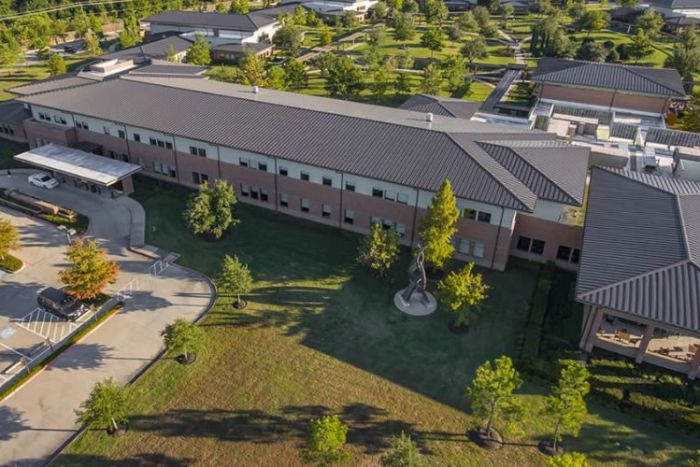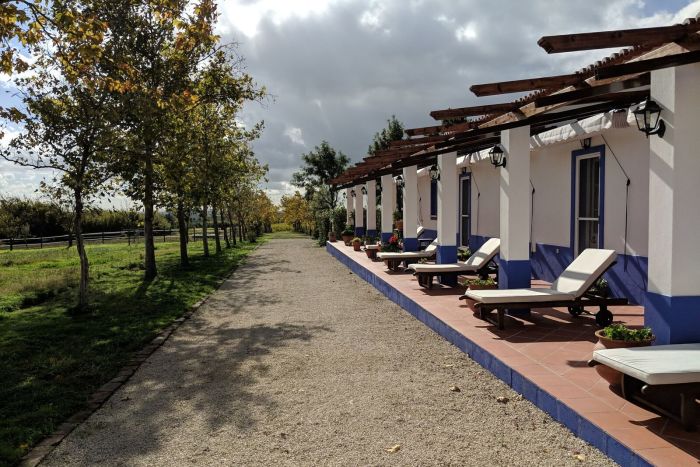A rehab center’s size influences your treatment experience in big ways. It impacts important factors like facilities, level of personalized attention, types of therapies offered and more.
When it comes to rehab size, one isn’t necessarily better than the other. What will work for you depends on your needs and preferences. Some people need intimate settings to open up and are more comfortable at a boutique rehab. Others require specific programs or therapies that larger treatment centers tend to offer.
To help you determine which type of center could work for you or your family member, we examine the benefits and differences between small and large rehab centers.
What Classifies as a Small Rehab Center?
While there’s no official definition of what constitutes a small rehab center, they tend to have the following:
- An intake limit of 10 to 15 people
- A 1:1 (or better) ratio of staff to patients
- Many have an intimate home-like setting with a limited number of bedrooms
- Some small rehab centers are family-run
How a Small Rehab Center Can Be Beneficial to Your Recovery
You Receive More Individualized Attention
At smaller rehab centers, multiple staff service one person at a time. Some even have a 3:1 staff to patient ratio, like The Sanctuary at Sedona in Arizona which has around 30 staff members serving 10 clients.
Centers with a high staff-to-patient ratio have a greater capacity to offer individualized attention. You usually have more time with clinical staff compared to the average inpatient setting, which gives you around 4.2 hours of contact per week with medical professionals.1
As Quinn Tremblay, Admissions Coordinator at McLean Fernside in Princeton, Massachusetts describes:
“Our staff-to-patient ratio allows us to provide higher amounts of individualized sessions with case managers and psychiatrists. Patients can meet with psychiatry 5 days a week and with a case manager 3 times a week. With that, more processing and evaluation can be done with each patient.”
Meeting often with the clinical team gives you more opportunities to engage in important dialogue. You can discuss matters like what therapies work for you and what doesn’t. Open, frequent dialogue helps people feel heard by their clinician, which is therapeutic2 in and of itself. According to a study from McGill University Health Centre, a listening doctor can offer patients “relief from the stress and anxiety that can be induced and exacerbated by illness.”

And since clinical staff at small rehabs often service fewer people at once, they have more time to map out your bespoke treatment plan.
You’re unlikely to fall through the cracks, as Don Lavender, Program Director at Camino Recovery explains:
“When you’re working with 7 or 8 clients maximum, they don’t get lost in the shuffle because there is no shuffle. And because it’s so small and the clinical crew is rather large with a lot of expertise in the clinical mix, treatment is truly bespoke.”
Programs Are More Flexible
Inpatient rehabs with lower intakes may offer more program flexibility. With fewer people to treat at a time, they don’t have to be as stringent with bureaucracy because it’s easier to oversee everyone. And as the clinical team builds a more personal relationship with you, they are more likely to keep track of your requests.
Dr. Thomas Gazda, Medical Doctor at Soberman’s Estate talks about how flexibility is a welcome change for some of their patients:
“We can be more flexible with a smaller number of intakes, which suits a lot of our patients. Many have been through rehab before and found it onerous or too regimented. It didn’t suit them as individuals and they were alienated in the process. Many of those patients come here and it’s a breath of fresh air because we try to be as flexible as possible with them.”
In rehab programs where you meet with staff more often, you might be able to adjust your treatment plan as necessary. Soberman’s Estate, for example, holds a staff meeting each week with the medical director, clinical director, and nursing team. Clients are invited to sit at the table, discuss their treatment goals and make adjustments to their plan if needed.
You Have More Access to Staff Members
Staff at smaller rehabs often have higher availability to meet with patients outside of regularly scheduled sessions. In these instances, you can pull someone aside when you need questions answered or simply want to talk.
For many people, building a connection with the center staff makes them feel supported and more at home. It creates a sense of belonging. This level of staff-patient relationship, where two or more people intend for healing to occur, is a key component of an optimal healing environment,3 or as defined in the Global Advances in Health and Medicine journal, a healthcare system “that is designed to stimulate and support the inherent healing capacity of patients, families, and their care providers.” In short, it supports a patient’s recovery.
At some small treatment centers, the founders and other senior staff members are hands-on in day-to-day operations. You’ll often see this at family-run rehabs. Founders will get to know each client personally and oftentimes give a deeper, more personal story about the center’s origins. Access to senior staff can promote a sense of trust and help people feel more comfortable at the center.
“(Co-owner) Jeanine and I live on the property. We feel it’s important that we’re available to our clients. We’re always at hand, should our clients need us. We’re very proud of it. We’re here every day because this is where we want to be and this is what we want to do.”
Giles Fourie, Director and Co-Owner at White River Manor in South Africa comments says core team members are always on hand to help clients:
You Can Be Part of a Tight-Knit Community
The intimacy of small treatment centers creates opportunities to build close relationships with others. Whether you choose a residential or inpatient rehab, you have a full schedule and spend lots of time with others in the program. You get to know the others on a deeper level, especially with a smaller group of people.
Alex Spritzer, Family Addiction and Psychiatric Nurse Practitioner at The Hope House Scottsdale, talks about the importance of this camaraderie:
“Small groups allow you to know people on a bigger level and learn details about their lives and the circumstances that they came from, which makes a lot of difference. Intimate settings promote trust, and trust promotes healing.”

Group Sizes Are Smaller
If you have social anxiety, large group settings can be daunting. This might cause you to withdraw or avoid participating in activities, which hampers the recovery process. Smaller rehab centers can provide a more comfortable environment with less intimidating group sizes.
Group therapy is a powerful tool for treating substance abuse4 and may even be as helpful as individual therapy. Participating in group therapy has several rewarding benefits, including decreased isolation. If you can’t open up because a group size is too large or intimidating, this can be a barrier to treatment. It may prevent you from going deeper in your recovery journey.
If you have severe social anxiety, some boutique rehab centers are flexible–you may not be required to participate in group activities at all.
With an intake limit of just 15 people, White River Manor can accommodate the needs of clients with social anxiety. “None of our groups are compulsory. Each client is on their own recovery journey. It’s important they get what they need out of their time with us, so we accommodate each client’s specific needs,” states Jeanine Fourie, the center’s Therapeutic Director and Co-owner.
Keep in mind that participating in group activities has many therapeutic effects5 that are beneficial to recovery. If you are able to join group therapy and activities, it can enhance your healing process significantly.
What Constitutes a Large Rehab Center?
There’s no industry standard for what classifies as a large treatment center. They tend to have more than 30 beds, with some that intake over 100 people. Oftentimes, these centers are located on larger grounds with lots of room for guests to roam and more facilities. They usually have a big clinical team to keep a favorable staff-to-patient ratio.
Larger rehab centers are often thought of as overly clinical or sterile. But this stereotype doesn’t paint an accurate picture of the larger treatment landscape. Bigger addiction treatment centers can offer many benefits to your recovery.
What Are the Benefits of a Large Rehab Center?
Better and More Specialized Facilities
Large rehab centers can often invest in better and more specialized facilities. Since they tend to be located on bigger grounds, they may have more room for these facilities compared to smaller centers.
Spotlight on: Sierra Tucson
One of the larger rehabs in Arizona is Sierra Tucson, set on a 160-acre property. They have the facilities to assist clients through the full spectrum of care, from on-site medical detox to outpatient programs.
The option to stay with one treatment center throughout the recovery journey is beneficial for people who feel uncomfortable with a lot of environmental change, or for those who want to work with certain doctors and therapists throughout their treatment experience.
“We manage various levels of care. When individuals need medically-supported detox, we can do that on-site in our inpatient unit. Afterward, they can transition seamlessly to the residential setting and further to our partial hospitalization and intensive outpatient programs,” says Dr. Jasleen Chhatwal, Chief Medical Officer at Sierra Tucson.
On top of that, Sierra Tucson has a number of specialized facilities to support different types of therapies, like experiential therapy and equine therapy.

Fitness amenities here include a pool, sports court, fully-equipped gym, climbing wall and a ropes course. They have unique onsite facilities to support the spirituality component of their program, including a labyrinth and Kiva arena. Their center even houses an equine area with stables and an arena.
The lack of certain amenities or facilities can be a hindrance to healing. If equine therapy played a necessary role in someone’s recovery journey, but it wasn’t available anywhere, this would be more than frustrating. Larger rehab centers tend to house facilities that are very important to some people’s recovery journey.
Spotlight on: All Points North
All Points North Lodge in Vail Valley, Colorado is set on a verdant campus with a 77-square foot main lodge. They’ve invested in cutting-edge facilities to support specialized therapies and treatments.
On top of an on-campus indoor pool, spa center, boxing arena, game room, and golf courses, this rehab houses state-of-the-art equipment tailored for certain therapies.
All Points North recently introduced a hyperbaric oxygen chamber to their campus. This equipment helps feed the body with the right levels of oxygen to quickly heal itself when faced with different injuries and illnesses. Hyperbaric oxygen therapy (HBOT) is now a part of their athletic program and promotes healing for athletes with concussions. But they also introduce other clients to this specialized treatment.
“We have a lot of patients that come from other parts of the country and we can give them a chance to let their bodies oxygenate. It helps them feel better quickly and really assists in treatment,” says Lana Seiler, All Points North’s Associate Director of Clinical Operations.
One of their clients who received HBOT reported, “the facility here goes to depths that most hyperbaric therapy doesn’t go. My experience was almost immediate, where my fog of war disappeared.”
If you need more specific facilities for treatment, it can be difficult to find them at a smaller rehab center. For those in situations with unique treatment needs, for example, an athlete who has had multiple concussions, it can be a huge relief to find a program with specialized equipment.
Specialized Programs and Therapies
If you’re looking for specialized programs or therapies, you’re more likely to find them at a large rehab center. These programs can get pretty specific and can accommodate the unique needs of their clientele.
For example, Hanley Center At Origins is an 80-bed center in Florida with a Center for Older Adult Recovery. This program is specifically designed for older men and women and includes medically supervised detox that addresses the medical concerns unique to someone’s age.
Meanwhile, All Points North has specialized therapies that can be difficult to find otherwise, such as hyperbaric oxygen therapy and Deep Transcranial Magnetic Stimulation (Deep TMS) for depression. Both of these therapies require special equipment operated by experienced professionals. They’re offered as a part of All Points North’s athletics program, a unique recovery program designed for current and retired athletes, created by professional athletes.

Smaller, Targeted Client Groups
Some centers with large intake numbers give you the option to break out into smaller, more targeted groups. Not only does this give you a level of safety and comfort as you go into your sessions, you can open up about trauma in your specific groups knowing others have likely been in your shoes.
Below are examples of specific programs found at different large rehab centers:
LGBTQ+ Recovery
United Recovery Project in Hollywood, Florida is a 31- to 50-bed treatment center with an LGTBQ+ program. They address the treatment needs of patients in the community and focus on providing a safe environment for LGBTQ+ individuals to open up. Their staff are specifically trained in cultural sensitivity and issues affecting the LGBTQ+ community.
Veterans’ Recovery
Sierra Tucson in Tucson, Arizona offers a Red, White and Blue Program for members of the military and first responders. The program is designed to help people feel comfortable sharing their experiences with others who have also been through the line of duty. The clinical team includes former military members and first responders.
Breaking up into smaller, more focused groups helps people feel more comfortable expressing themselves and can improve therapeutic outcomes. One of the keys to successful group therapy6 is to identify common bonds between clients. According to Martyn Whittingham, Ph.D., an Ohio counseling psychologist and president of APA’s Div. 49 (Society of Group Psychology and Group Psychotherapy), “discovering commonalities is crucial to building group cohesion.”
On top of that, a study on behavior change7 published in the Health and Well-Being journal found that homogeneous groups were better at instigating behavioral changes compared to heterogeneous groups.
Large Treatment Centers Mirror the Real World
An important aspect of the recovery journey is the ability to take what you’ve learned during your time in rehab and apply it to your daily life.
Larger treatment centers offer an environment that better mimics the real world. This gives you the opportunity to put the work you’ve done in therapy into practice. You also learn how to be a part of a larger community.
“A larger facility mirrors being in a larger community as a whole: you can find your people and learn how to deal with others. You can make your way in the treatment center in a way that mirrors how you need to make your way in the world. Successful treatment usually involves reconnecting and learning how to function in a social society,” says Dr. Ryan Drzewiecki, Director of Clinical Operations at All Points North Lodge.
Greater Network of Resources
Larger facilities often have a healthy network of resources to support your recovery. Some even have the capacity to team up with industry leaders.
Take Axis Sports Medicine, for example. They employ the highest number of advanced certified physical therapists in the state of Colorado. All Points North Lodge teamed up with them to offer top-level physical therapy to clients.
If you’re looking to connect with specific leading resources, like a top teletherapist in your area, larger treatment centers may be able to help you. They tend to have a more robust network to pull from.
Find a Treatment Center That Fits You
Both small and large rehab centers offer their own set of benefits. One isn’t necessarily better than the other. Recovery is unique for each person, so the criteria that you’re looking for may differ from someone else’s.f
The good news is, you have plenty of options to choose from. Browse our extensive collection of rehabs to find a treatment center that fits your needs.

















